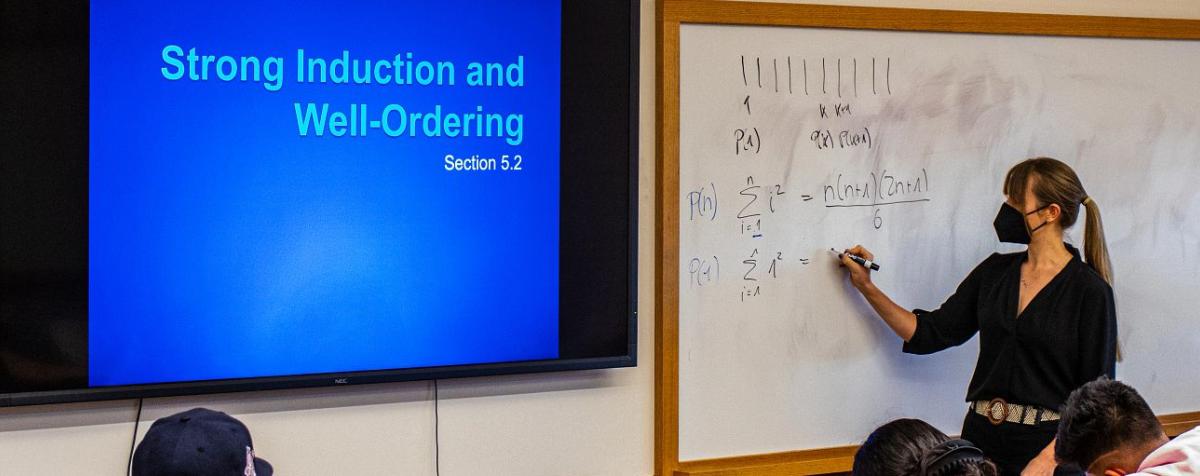Submit a Strong Proposal
PinS and Summer Research Grant Requirements
All PinS and Summer Research Grant applicants ARE REQUIRED to review the webinar recording from The Writing Center prior to submitting a proposal. The updated recording link can be found on the Writing Center's Portfolio site where you can also find helpful resources for writing your proposal.
SUMMER RESEARCH GRANT DEADLINE: Monday, April 8 at 11:59 PM -- APPLY HERE
Grant Application Instructions
-
Summer Research Grants & Partners in Scholarship
A complete PinS or Summer Research Grant application consists of:
- Watching the "How to Write a Proposal" workshop video and utilizing the materials for writing a successful proposal on the Writing Center's website.
- The online application. APPLY HERE.
- The project proposal should be a maximum of 2 pages, SINGLE-SPACED. You should also include a 3rd page that lists citations, a timeline, and a detailed budget justification (uploaded at the end of the online application). We encourage you to use the URC Proposal Evaluation Rubric to guide your proposal structure.
- Unofficial transcripts (we will gather this for you).
- Faculty partner endorsement form (this will be automatically forwarded to your faculty partner after you submit your application and faculty will need to complete their endorsement by the Monday after the deadline)
The proposal review committee is comprised of faculty from a diverse set of academic departments on campus. Thus your proposal should be written for an intelligent but non-specialist audience. You may have readers from history, biology, art, etc. who all need to be able to understand and evaluate your proposal. Good writing matters. Your proposal will be evaluated for its writing presentation. The project proposal should address the following:
- Define the research problem or a creative endeavor. How does it fill a gap in existing knowledge or the extant body of creative works, and why is it important to fill that gap? Be sure to cite the most important sources that your project builds upon. What is the question you hope to answer? Why are you undertaking the project?
- Describe the research method and research design. Explain how you will collect data or recruit participants. For visual or performing arts, explain how the proposed project is not simply an effort to refine one's own skills or abilities but connects to broader questions within your discipline.
- How does the project relate to your goals? What background do you have that prepares you for this project?
- Convince the committee that the project is feasible. Why is it likely to succeed?
- What will be the final product(s) of the project?
Be sure to address why this research is needed. If you are collecting new data, justify why you cannot work with existing data. If you are requesting funds for travel, why is it necessary for you to go to the destination? If conducting interviews, why are in-person interviews preferable to email or Skype?
-
Student Scholar Travel Fund
The SSTF application is online. APPLY HERE.
Applications are accepted at any time during the academic school year. The committee reviews applications on a monthly basis. Be prepared to provide the following information:
- Your general student information
- Event information (dates, location, name of conference or meeting)
- Project title
- Project abstract/summary
- Itemized budget and budget description
Human and Animal Research
-
Does your proposed project involve human subjects?
If your project involves human subjects (this includes surveys, interviews, observation of public behavior, etc.) you must complete and submit an application to the Institutional Review Board (IRB) for the Protection of Human Subjects form. Complete the IRB form in consultation with your faculty partner and submit it to the IRB. IRB approval can take time. If you receive URC funding, it will be contingent upon IRB approval.
-
Does your proposal involve animals?
If you are working with animals, you must receive IACUC approval. If you receive URC funding, it will be contingent on IACUC approval.
International Research
For all international PinS grant requests, all applicants must check if their proposed destination(s) is considered to be an elevated-risk destination by International Travel Health and Safety (ITHS) prior to submitting an application. Applicants can do so by reviewing the information on this site to determine if your destination(s) is on the elevated-risk list. If your destination(s) is not found on the list of elevated-risk destinations, proceed with the PinS application process.
If your destination(s) is on the list, please seek approval for travel to this destination by registering your travel at abroad.du.edu>>International Travel Registry and completing all the information requested about your planned travel. Someone from the ITHS team will be in contact after review of your information and within two weeks. If you have any concerns or questions relating to the health, safety, and security of your proposed destination(s), please contact intlsafety@du.edu to discuss any issues.
Additionally, if you are approved for funding and plan to travel internationally for your research project, you are required to register your travel here: https://abroad.du.edu/index.cfm?FuseAction=Programs.ViewProgramAngular&id=10348.
Resources for Building a Proposal
Faculty Committee
Here you'll find a list of everyone on the applications committee. These individuals from different DU departments decide if your proposal will receive funding from DU.
Writing Center
The writing center can help you hone the language in your proposal. Don't hesitate to reach out for assistance.
Rubric
Here are the criteria on which your funding proposal will be evaluated. The committee also take into account factors like your GPA to determine if an additional project is in your best interest.
